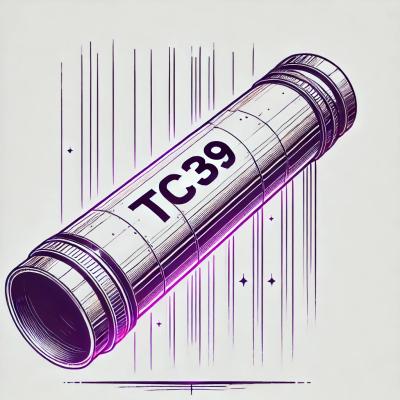
Security News
NVD Quietly Sweeps 100K+ CVEs Into a “Deferred” Black Hole
NVD now marks all pre-2018 CVEs as "Deferred," signaling it will no longer enrich older vulnerabilities, further eroding trust in its data.
@dcspark/adalib
Advanced tools
Cardano friendly API
Adalib implements a Connector interface that complies with WalletConnect's standards.
It attempts to closely emulate the CIP-30 standard within the connectors. A dapp developer can use these connectors to retrieve the enabled CIP-30 API, and benefit from the included typings this library provides.
The init function needs to be called to prepare adalib to be able to call all
the functions in its API.
import {
init,
cardanoMainnetWalletConnect,
FlintConnector,
WalletConnectConnector
} from 'adalib'
init(
{
// The different connector methodologies that will be used.
// PhantomConnector will interact with injected Phantom Wallet using browser
// extension, while WalletConnectConnector can be used to interact with all
// wallets that support the WalletConnect protocol.
connectors: [
new FlintConnector(),
new WalletConnectConnector({
relayerRegion: 'wss://relay.walletconnect.com',
metadata: {
description: 'Test app for adalib',
name: 'Test Adalib dApp',
icons: ['https://avatars.githubusercontent.com/u/37784886'],
url: 'http://localhost:3000'
},
autoconnect: true,
qrcode: true
})
],
// Name of the connector to be used.
// The connector needs to be registered in the connectors field above.
// This can be switched later using `switchConnector` function.
connectorName: WalletConnectConnector.connectorName(),
// The name of the chain and network to use.
// Here, `mainnet` refers to the cardano mainnet network.
chosenChain: cardanoMainnetWalletConnect()
},
WALLETCONNECT_PROJECT_ID
)
The connect function can be used to connect a wallet to a dApp. The wallet
chosen needs to be configured in the init function above.
import { connect } from 'adalib'
const address = await connect()
Instead of retrieving the address once on the connect function, one can globally
watch address changes using the watchAddress API.
import { watchAddress, connect } from 'adalib'
watchAddress(address => {
console.log({ address })
})
connect()
import { switchConnector, FlintConnector, connect } from 'adalib'
switchConnector(FlintConnector.connectorName)
const flintWalletAPI = await connect()
sendTransaction to avoid depending on aa wallet's
implementation, only having to use their signMessage functionFor now when developing, feel free to use the example/dev.sh to help with
refreshing the cache and installing a fresh local solib package to test your
changes. TODO: Will look into making this better.
Example app written in react, for testing
Actual source code.
base.ts is a base class that
has functionality for building connectors, as well as non-wallet-specific
actions (eg: fetching wallet balance from the cluster)FAQs
Cardano development utilities and wrappers
We found that @dcspark/adalib demonstrated a not healthy version release cadence and project activity because the last version was released a year ago. It has 5 open source maintainers collaborating on the project.
Did you know?

Socket for GitHub automatically highlights issues in each pull request and monitors the health of all your open source dependencies. Discover the contents of your packages and block harmful activity before you install or update your dependencies.

Security News
NVD now marks all pre-2018 CVEs as "Deferred," signaling it will no longer enrich older vulnerabilities, further eroding trust in its data.

Research
Security News
Lazarus-linked threat actors expand their npm malware campaign with new RAT loaders, hex obfuscation, and over 5,600 downloads across 11 packages.

Security News
Safari 18.4 adds support for Iterator Helpers and two other TC39 JavaScript features, bringing full cross-browser coverage to key parts of the ECMAScript spec.